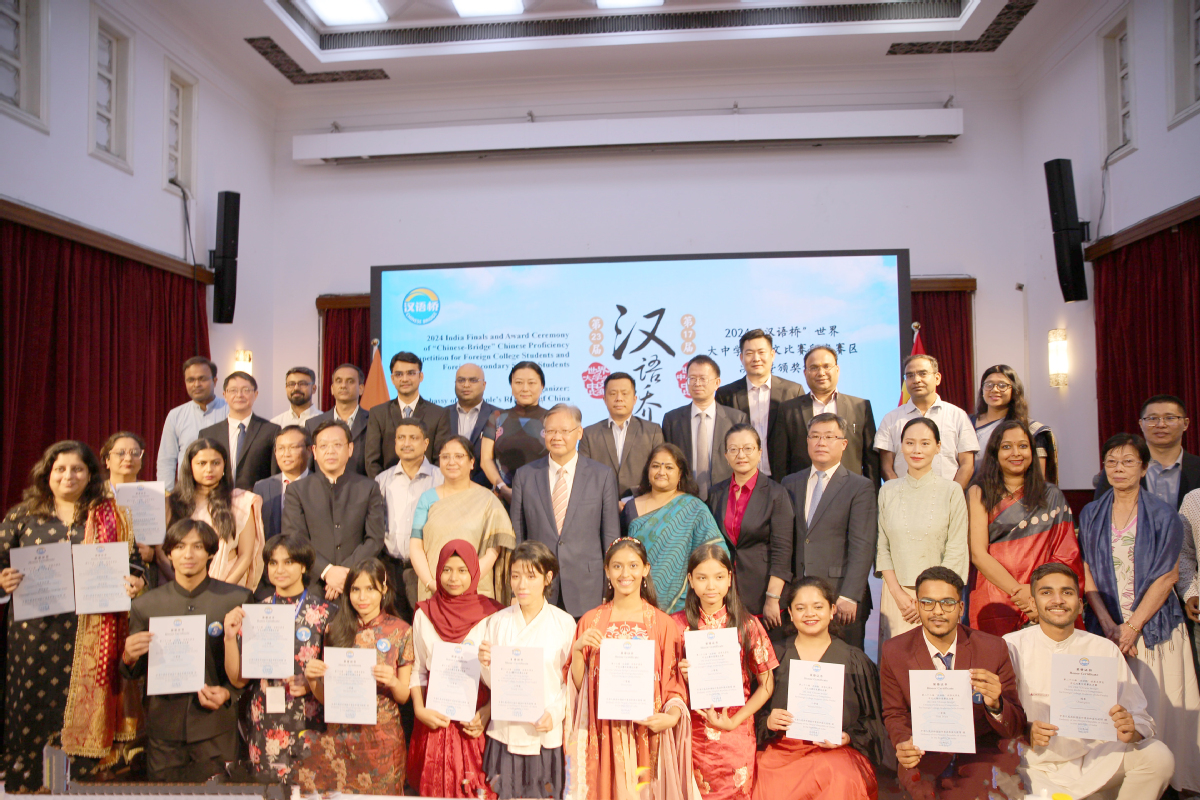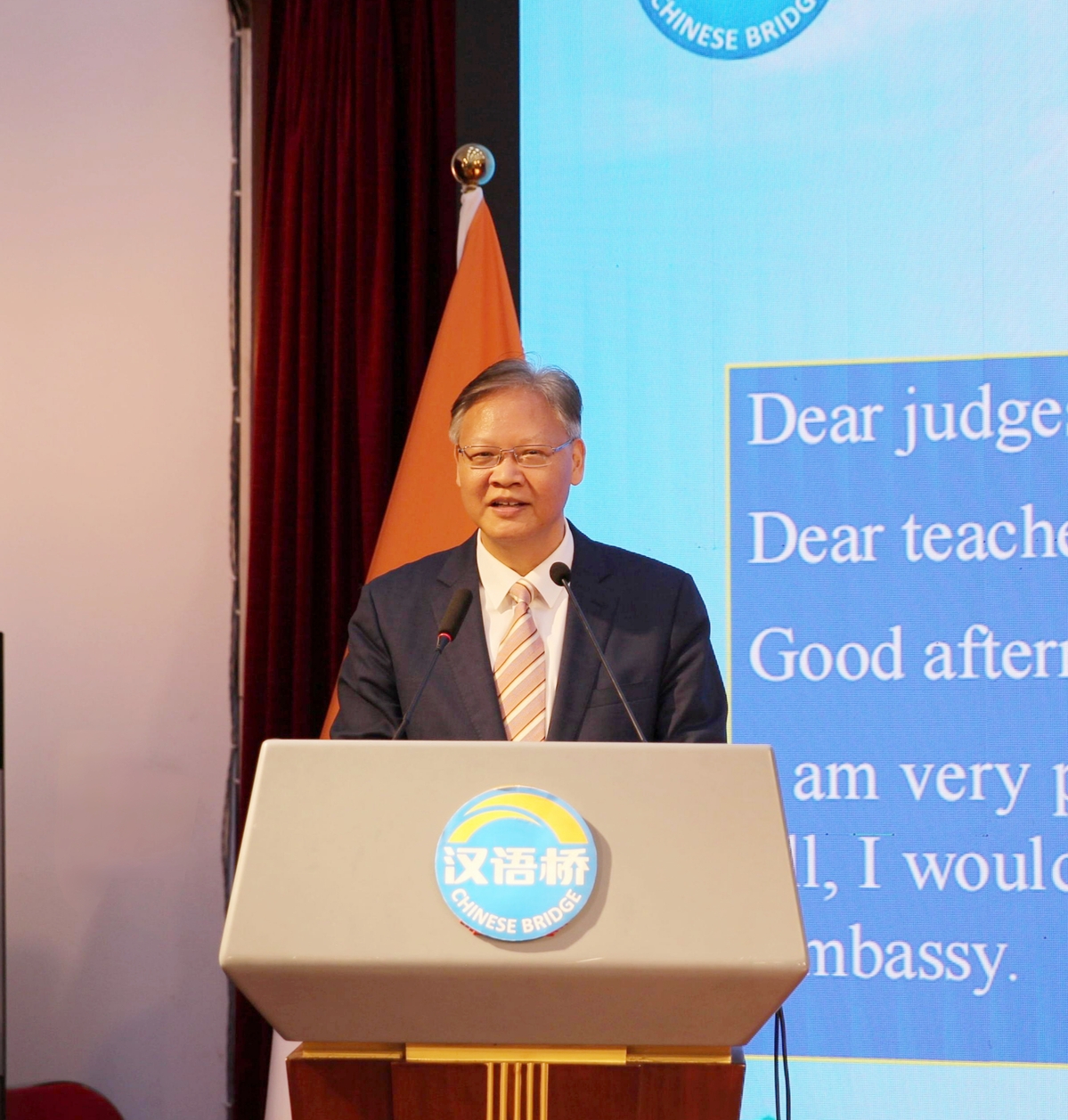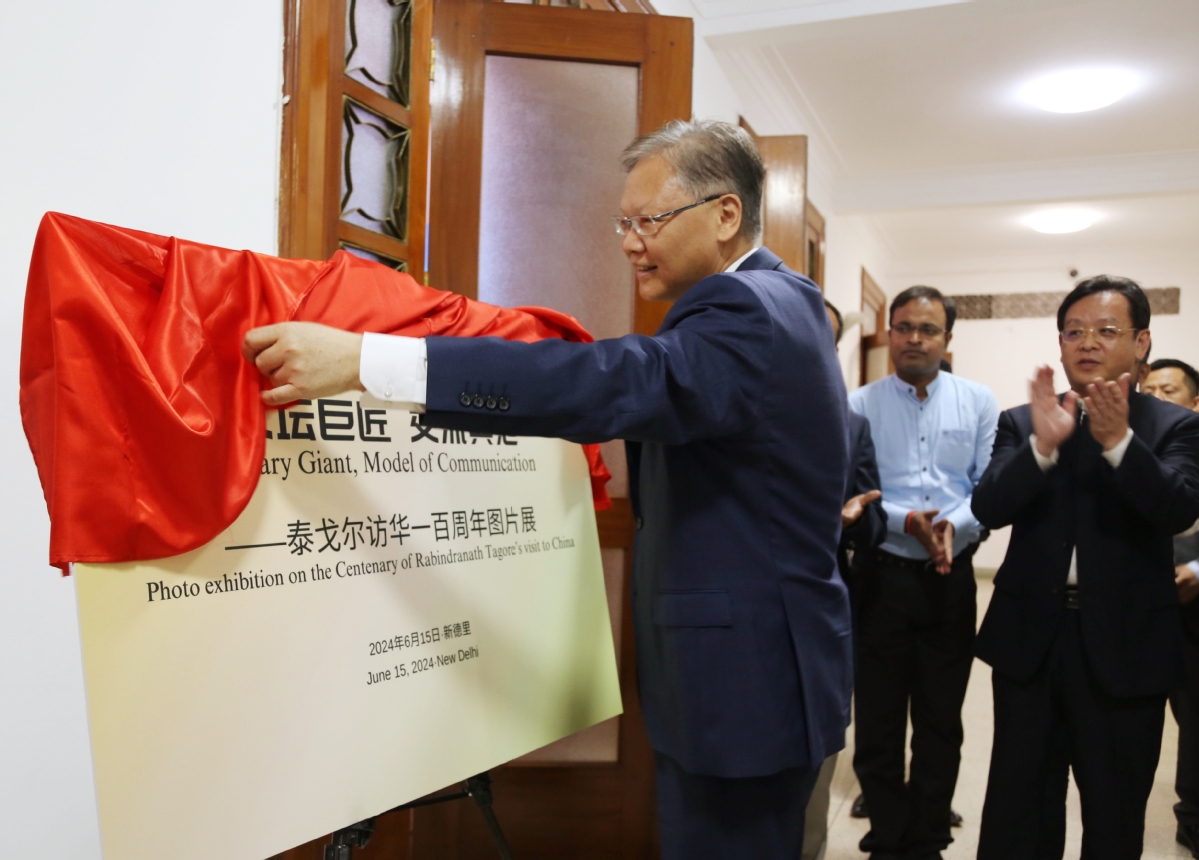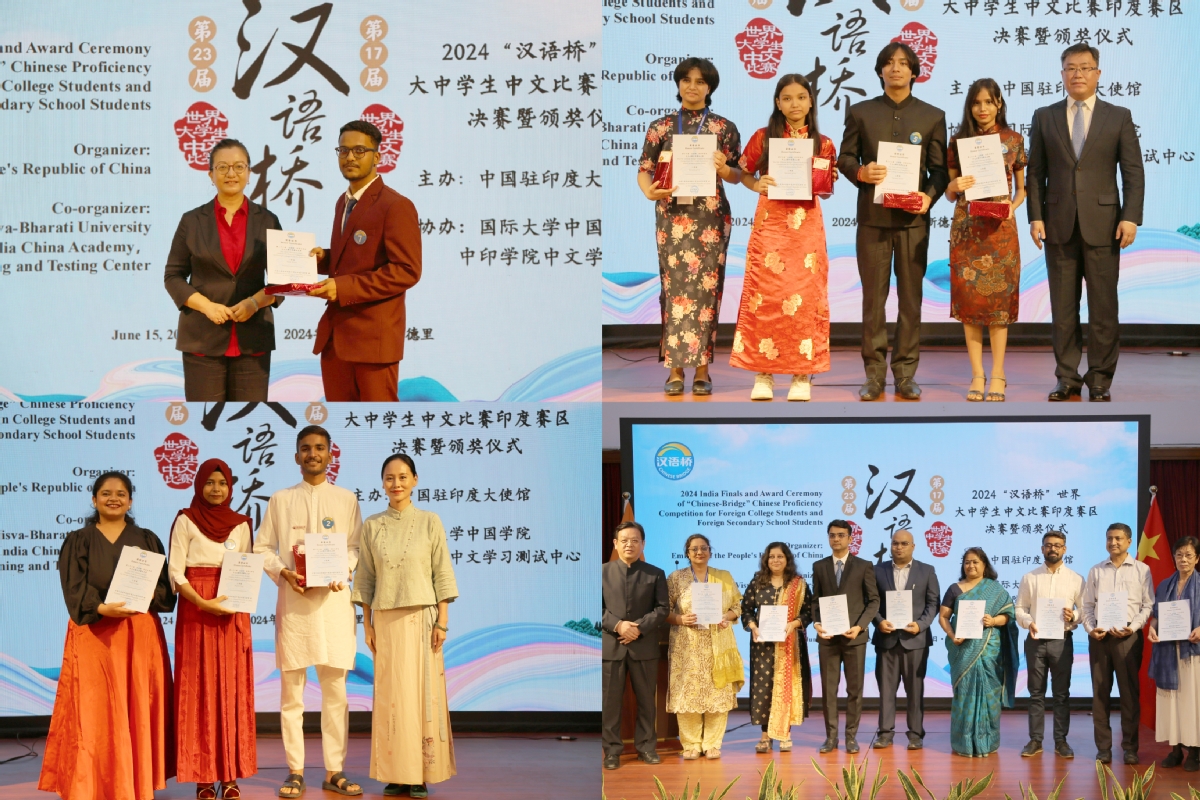
Indian youths are encouraged to visit China and expand exchanges, Chinese Ambassador to India Xu Feihong said on June 15 during an embassy event in New Delhi that featured a language proficiency awards ceremony and the unveiling of an exhibition related to late Indian scholar Rabindra Nath Tagore.
I look forward to strengthening communication with the new Indian government and friends from all sectors of India, to enhance mutual understanding and trust, restore exchanges and cooperation in various fields. Chinese
Xu Feihong, Chinese Ambassador to India
"The future of our two countries depends on the young people, and so does the future of our world. Today, all of you, from all over India, understand China through the window of Chinese, and promote exchanges and friendship between the two peoples through the bridge of language," Xu said while speaking at the India finals and award ceremony of the 2024 "Chinese Bridge" Chinese proficiency competition for foreign college and secondary school students.
"I'm convinced that the tradition of China-India people-to-people exchanges and cultural mutual learning over thousands of years will be passed down by you. And a new and more glorious chapter will be scripted."
ALSO READ: Envoy: Sound and stable China-India ties benefit both and world
And China seeks more sound and stable relations with India, Xu said. "I look forward to strengthening communication with the new Indian government and friends from all sectors of India, to enhance mutual understanding and trust, restore exchanges and cooperation in various fields."
The address came after the envoy earlier unveiled a photo exhibition that commemorated the centenary of renowned poet, writer, philosopher and educator Tagore's 1924 visit to China.
Xu said that stable bilateral relationship is in the interest of both countries and will contribute to regional and global peace and development.

Since last year, China and India have maintained high-level communication and interactions. Bilateral trade in 2023 reached $136.2 billion, and China once again became India's largest trading partner.
The two sides are highly complementary economically, with huge development potential, Xu said.
Leaders of both countries have reached an important common understanding that the two nations are "each other's development opportunities, not threats", providing important guidance for bilateral relations, the ambassador said.
READ MORE: Sino-Indian trade remains robust in new fiscal year
China and India are both ancient civilizations with a long history and splendid cultures, Xu said, pointing to friendly exchanges and mutual learning between the civilizations through the course of history.
Nearly two thousand years ago, Indian monks Dharmaratna and Kasyapa Matanga came to China with scriptures, kicking off the spread of Buddhism to the East, Xu said.

Meanwhile, eminent Chinese monks such as Faxian, Xuanzang and Yijing traveled westward to seek the Dharma. They collected, copied, and translated a large number of Buddhist classics. Along the ancient Silk Road, Chinese paper-making, silk, porcelain and tea were brought to India, and Indian singing, dancing, astronomy, architecture and spices were introduced in China.
The envoy's remarks came amid the awards ceremony for the Chinese language proficiency competition, which tested the ability of participants to use Mandarin in a creative and expressive manner.
"Stories behind every character of the Chinese language are fascinating. Stories behind the Chinese movies were very interesting and influenced me to learn the language" said Rawat.
Nearly 60 students from 20 Indian universities and middle schools took part in the preliminary round of the competition.
Around 13 students from different Indian universities and middle schools entered the final round, organized by the Chinese embassy in the afternoon on June 15.
ALSO READ: Indian youth delegation inspired by China trip
After the envoy's speech, there was a talent show where students showcased various skills including trying out tongue twisters in Chinese language, reciting Chinese poetry, singing in Chinese and performing traditional Chinese folk music with a flute. That was followed by the language proficiency awards.
Preetam Rawat, who secured second position in the competition, said the interest he developed in the Chinese language is because of Chinese movies and the language's characters.
"Stories behind every character of the Chinese language are fascinating. Stories behind the Chinese movies were very interesting and influenced me to learn the language," said Rawat.

Students from different corners of the country, including India's Confucius Classroom at the School of World Languages in Kolkata, West Bengal state; Tagore International School (TIS), New Delhi; Visva-Bharati University, West Bengal; and the University of Mumbai, took part in the competition.
Surekha Dangwal, vice-chancellor of Doon University; and Avijit Banerjee, sinologist and head of the Chinese studies department of Visva-Bharati University, were among those present at the event.
Dangwal said that through language and cultural learning, the university aims to improve and develop better relationships and people-to-people contact between India and China.
Viswa-Bharati University's Banerjee expressed hope that more young people will learn each other's language in the future and build a broader bridge to enhance mutual understanding and friendship between the two nations.
READ MORE: Modi begins third term as India thanks China's regards
In 1924, Indian scholar Tagore went to China and visited seven cities, including Beijing and Shanghai, over 49 days. He had extensive exchanges with Chinese political, educational and literary communities, and called for friendship. Later, Tagore invited Chinese scholar Tan Yunshan to India, and co-founded the department of Chinese language and culture (Cheena Bhavana) at Visva-Bharati University.
As this year marks the 100th anniversary of Tagore's landmark China trip, a series of events have been held, including the latest photo exhibition, to commemorate the scholar's contribution to promoting exchanges and cooperation between China and India.
The writer is a freelance journalist for China Daily.



